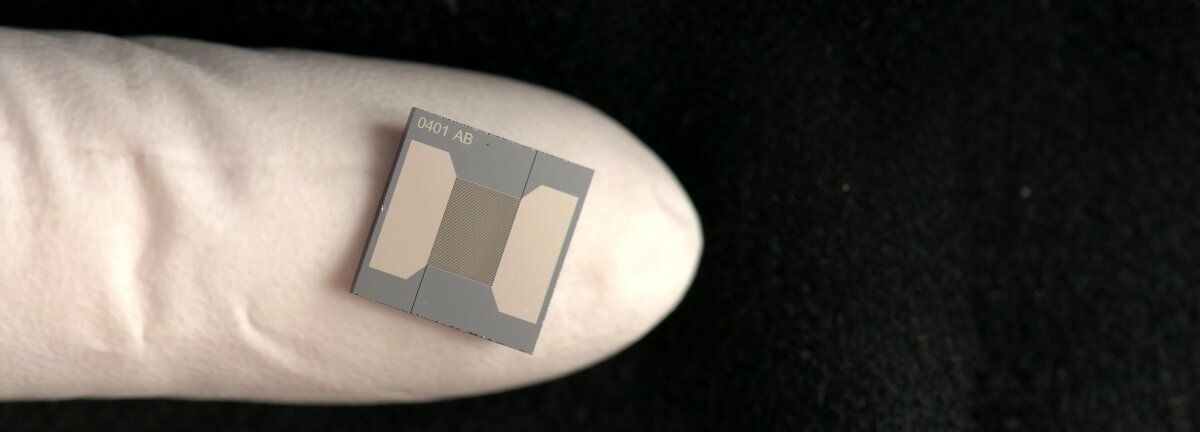Owlstone

What we learned from the Design Council continues to benefit the business, even all these years on. Making our technology intelligible to a wider audience and adopting a user-led approach has been invaluable.
Billy Boyle, Co-founder, Owlstone Nanotech
Nine years ago, Owlstone Nanotech consisted of three researchers working in a basement laboratory in Cambridge University. Fast forward to today and the company is at the cutting edge of micro and nanotechnology after it developed a micro gas sensor that has won them a $4m contract with the US Department of Defence. Owlstone has also won $15 million in investment and is expected to play a key role in the future of medical diagnostic tools. The magic ingredient is a microchip that can 'sniff out' the presence of any chemical agent that may be present in extremely small quantities. This ranges from detecting contaminants and warfare agents in the atmosphere, to smelling for the presence of diseases such as diabetes and lung cancer on a person’s breath.
One hundred times smaller and a thousand times cheaper than available technology on the market, it's no wonder Owlstone had a massive future ahead of it. However, when Owlstone founder Billy Boyle first approached the Design Council for business support back in 2004, it was still a start-up in its infancy looking to identify market opportunities and create a strong brand with a crisp story.
<iframe src="//player.vimeo.com/video/17920342?title=0&byline=0&portrait=0&color=ffffff" width="640" height="360" frameborder="0" webkitallowfullscreen mozallowfullscreen allowfullscreen></iframe>
Challenge
Owlstone had developed a groundbreaking technology, yet the challenges they faced at launch were the same as those faced by many technology start-ups today:
- Explaining their technology
- Attracting investors
- Identifying the right routes to market
One reason the technology was so difficult to explain was because of its invisibility to the naked eye. Another was the diversity of the audience the company had to reach: technical partners, investors, customers, media and potential employees. As a start-up, the business support they needed included helping them identify the best short-term and long-term applications for their technology and the right strategy for market entry.
What we did
The work we did with the Design Council helped us identify opportunities we hadn't considered before and match them to the evolution of the technology.
Billy Boyle, Co-founder, Owlstone Nanotech
We designed a package of support and coaching to help Owlstone achieve five things:
- Develop their USP and strategy
- Develop their pitch to communicate the value of their technology to potential investors
- Identify intermediate products to build visibility and gain confidence among investors
- Create a brief for a creative agency
- Introduce ways of building simple, low cost prototypes to help test new applications for the technology
With coaching and support from one of our experienced Design Associates, Owlstone were able to quickly refine their business proposition, sharpen their pitch to investors, and communicate their value more effectively. "Investors are keen to make returns fast so we had to work to match the product and technology road maps," Boyle explains. The company's corporate identity was also fundamental to investment success. "It was a very important part of establishing credibility with investors and potential partners. We had technology and we had a team but we had to present ourselves in a way that made people take the proposition seriously." Boyle said, "With our DA we found the right branding agency and it fell into place."
Integrated marketing communications agency Mostra was subsequently appointed to develop a brand identity, marketing materials and a website following a competitive tender process.
Results
Without the support we received from the Design Council we would have missed a big opportunity. It exposed us to new ideas we could use straight away which gave us shape and direction.
Billy Boyle, Co-founder, Owlstone Nanotech
Over the course of our programme Owlstone gained the confidence of knowing the right route to market. This resulted in the company's first production model chemical detection device launching within two years. The product was such a success, Owlstone have since developed four other products and today are active in the military, industrial and scientific markets.
As a direct result of our work, design is now a core part of Owlstone's management strategy and toolkit and an understanding of how best to brief and manage external designers is embedded within the business.
The modelling and visualisation work we conducted with Billy and the team helped them to raise the investment they needed - $15 million since launch. Placing its technology into intermediate products allowed Owlstone to reduce its risk, and by speeding up the time it took to get to market, the company was able to generate revenue sooner and therefore win confidence from investors.
Subscribe to our newsletter
Want to keep up with the latest from the Design Council?
